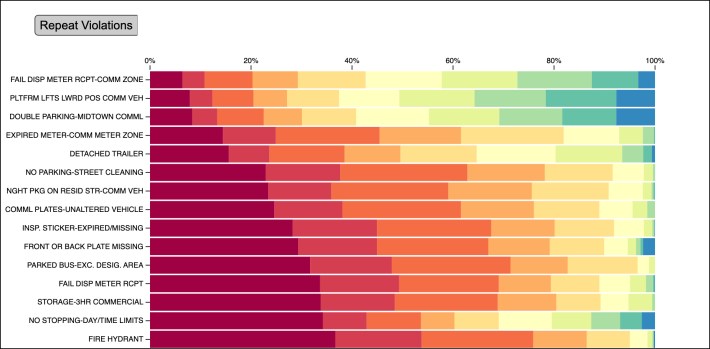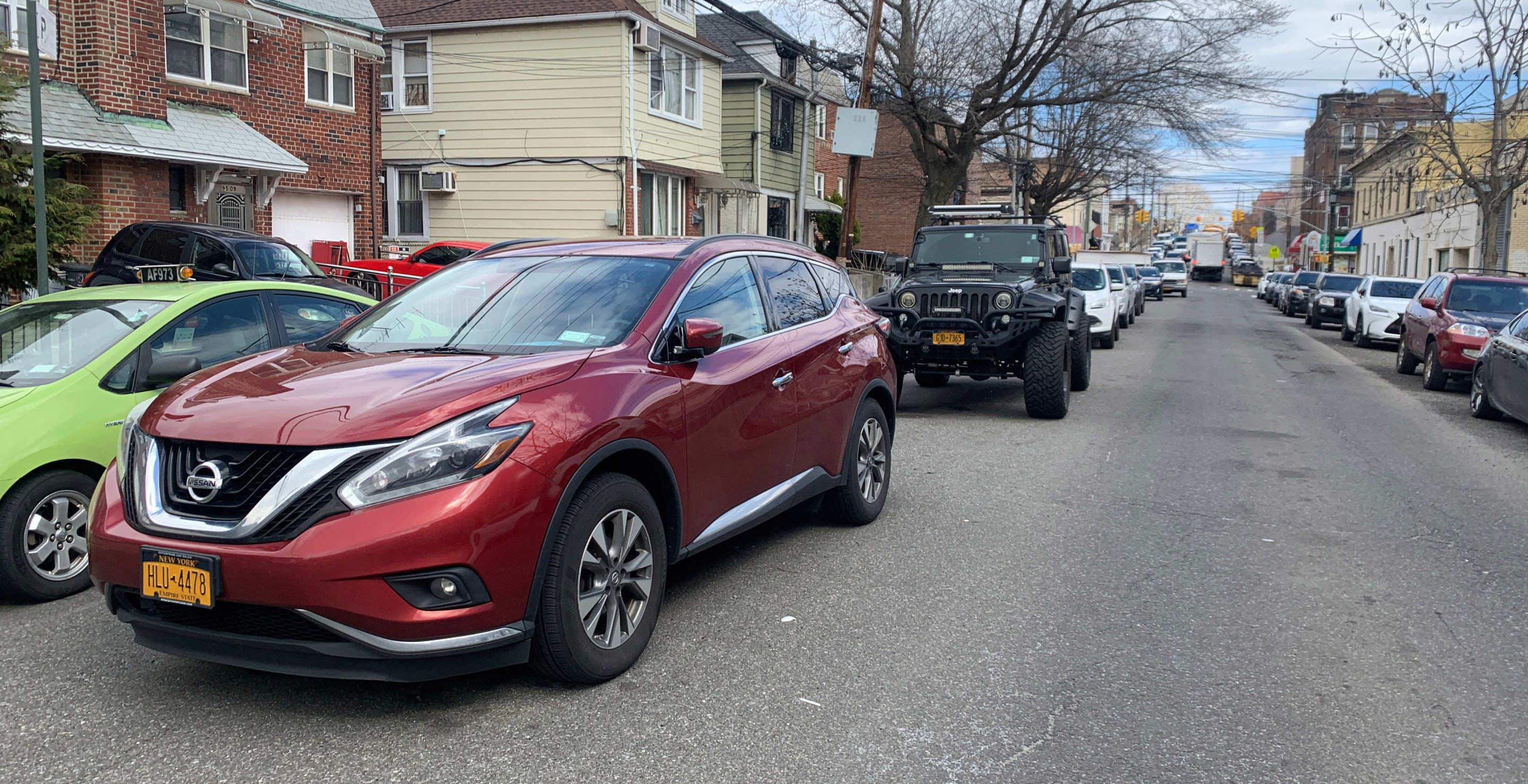More than one-third of all parking tickets the city gave drivers for blocking street sweepers went to motorists who had already gotten fined for the same offense half a dozen times or more, according to a new analysis of city data.
New Yorkers who left their cars along the curb on sweeping days comprise by far the most common parking ticket, with nearly 4 million out of 19 million total summonses over two recent years, according to city data crunched by Manhattan safe streets activist and data expert Jehiah Czebotar.
"In many ways it is their cheapest option, to leave their car there and pay the occasional fine, because the city doesn’t charge market rate for on-street parking" Czebotar told Streetsblog.
The city gave out 3.8 million fines for parking during sweeping between October 2021 and September 2023, almost 77 percent of which went to repeat offenders — and more than 37 percent going to people who got at least six tickets.
The fines are currently capped at $65, and many drivers take the small risk of getting one rather than shell out hundreds of dollars for a monthly parking spot in a garage, which easily exceeds $1,000 a month in parts of the city, according to SpotHero, a parking reservation platform.
A recent bill by Council Member Lincoln Restler would escalate fines for not moving a car during alternate-side parking to $100 for the second ticket within a year, and require the city to tow a vehicle after three such violations over 12 months.
A small share of drivers — 7 percent — account for nearly one-third of all such repeat tickets, according to Restler.
"These are the kinds of folks that we're trying to bring some real accountability to," the Downtown Brooklyn pol recently told NY1.
186,041 vehicles in NYC receive 10+ OF THE SAME TICKET in a 2 year period. That’s 4,060,009 summonses for drivers that need a stiffer penalty.
— Jehiah (@jehiah) February 29, 2024
A9031 hits them with 2x the fine on 10th violation, 3x on 11th violation, etc. https://t.co/pjwureIlVB pic.twitter.com/YCZSWuorF7
Recidivism among parking scofflaws is even more pronounced for other violations; Czebotar found that a whopping 186,041 vehicles were ticketed for the same violation 10 or more times during the two years.
The nearly 200,000 vehicles that cleared that high bar, according to Czebotar’s calculations, account for one-fifth of all parking summonses over those two years.

Police often let illegal parking slide in the Big Apple, but the laws on the books also cap parking tickets at between $50 and $150, a cost low enough for tens of thousands of drivers to just shrug and keep on racking up summonses.
“It’s very clear that we have issues with parking enforcement. We also have issues where drivers just don’t seem to care about getting fines, which means the fines themselves are not enough to change behavior,” said Czebotar.
The state should start doubling fines each time after the 10th violation, up to five times the current cap, or between $250 and $750 depending on the violation, according to Manhattan Assembly Member Tony Simone, who has submitted a bill to do just that.
“There’s a number of drivers who are comfortable accruing dozens or hundreds of the same tickets,” Simone told Streetsblog. “The bill was introduced to target the worst repeat offenders of parking tickets.”
The top repeat offense was parking illegally in a metered spot in a commercial zone — nearly 94 percent of those summonses went to drivers who had already been ticketed for that before.
Other proposed laws at the state level to stiffen fines include a bill that would raise fines for speeding repeatedly, and another that would do the same for breaking red lights.
Those efforts became even more necessary after the city let its flawed effort expire last year to crack down on repeat offenders, also known as the Dangerous Vehicle Abatement Program, without interest among leading lawmakers to keep it going.
“The Dangerous Vehicle Abatement Program expired and now we need to try something new,” said Czebotar.
The ticket caps date back decades and have effectively gotten cheaper for motorists by not keeping pace with inflation.
Parking in a no stopping or no standing zone has been capped at a $100 fine since in 2002, which would be $171 in today's money.
“We want tickets to be a deterrent not just the cost of doing business,” Simone said.






